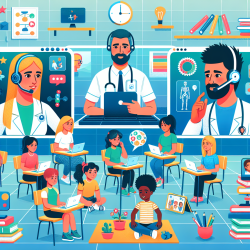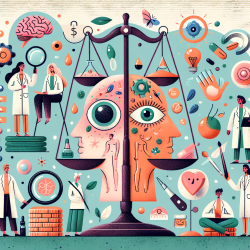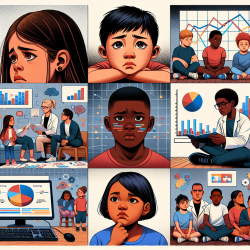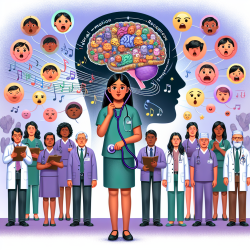The journey towards a diagnosis for children with undiagnosed conditions, often referred to as the "diagnostic odyssey," can be long and challenging. A recent study, "The diagnostic odyssey: insights from parents of children living with an undiagnosed condition," sheds light on the experiences of parents navigating this complex process. As a speech-language pathologist, understanding these insights can significantly enhance your practice and improve outcomes for children.
The study identified three primary themes from the parents' experiences:
- Responding to Significant Care Needs: Parents often become the primary navigators, experts, and advocates for their children, managing not only healthcare but also educational and disability services. This multifaceted role requires a deep understanding of various systems and constant coordination.
- The Diagnostic Odyssey: The journey towards a diagnosis is often described as a rollercoaster, filled with emotional highs and lows. Parents face multiple interactions with the healthcare system, inconclusive results, and sometimes misdiagnoses, all while managing their child's ongoing health needs.
- The Value of a Diagnosis: Despite the challenges, parents see significant value in obtaining a diagnosis. It provides clarity, helps in planning future care, and can connect them with relevant support groups and resources. However, the study also highlights that parents need support beyond just the diagnostic process.
For speech-language pathologists, these findings underscore the importance of a holistic approach when working with children with undiagnosed conditions. Here are some actionable steps to consider:
- Enhance Multidisciplinary Collaboration: Collaborate closely with other healthcare providers, educators, and disability service professionals to ensure comprehensive care for the child. Regular communication and shared goals can streamline the diagnostic process and support the child's overall development.
- Empower Parents: Provide parents with the tools and knowledge they need to navigate the healthcare and educational systems effectively. This can include offering resources, training sessions, and emotional support to help them advocate for their child's needs.
- Focus on Functional Outcomes: While a diagnosis is valuable, prioritize interventions that address the child's immediate functional needs. Tailor your therapy plans to improve communication skills, social interactions, and daily living activities, regardless of the diagnostic status.
- Encourage Peer Support: Facilitate connections between parents of children with similar conditions. Support groups and online communities can provide valuable emotional support and practical advice, helping parents feel less isolated.
- Stay Informed: Keep up-to-date with the latest research and advancements in diagnosing and managing rare and undiagnosed conditions. This knowledge can inform your practice and enable you to provide the best possible care for your clients.
In conclusion, the diagnostic odyssey is a complex and emotional journey for parents and children alike. As speech-language pathologists, we can play a crucial role in supporting these families by fostering collaboration, empowering parents, and focusing on practical outcomes. By doing so, we can help mitigate the challenges of the diagnostic odyssey and create better futures for children with undiagnosed conditions.
To read the original research paper, please follow this link: The diagnostic odyssey: insights from parents of children living with an undiagnosed condition.










